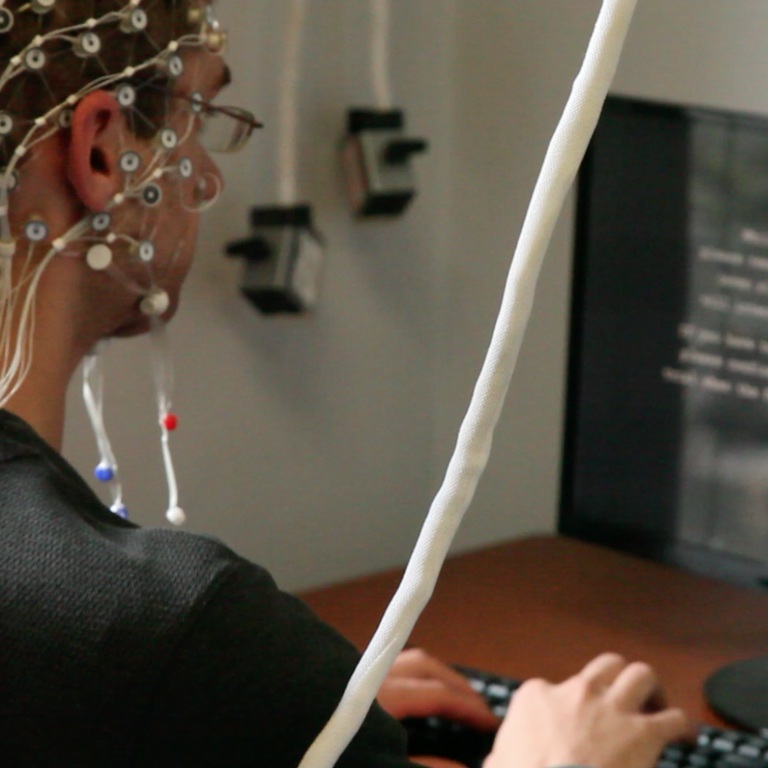This is Part Four of our Investigating Wisdom series where we discuss Practical Wisdom: Philosophical and Psychological Perspectives with several of its authors in order to better comprehend the nature of phronesis. This installment features Dr. Christian B. Miller.
Dr. Miller, A.C. Reid Professor of Philosophy at Wake Forest University, is the Project Director of the Honesty Project, a research initiative developed in collaboration between Wake Forest University and Carnegie Mellon University with support from the John Templeton Foundation. As its name suggests, the Honesty Project deepens the scientific understanding of honesty through both empirical research and the philosophical study of honesty, including what internal and external factors cause individuals to be honest vs. dishonest, what the motivations behind honesty really are, and how honesty can vary between different cultures.
Miller recently contributed a piece to Practical Wisdom, edited by Maria Silvia Vaccarezza and Mario De Caro. He wrote the volume’s third chapter titled Flirting with Skepticism about Practical Wisdom.
After attending a conference held by the Jubilee Centre for Character and Virtues, the editors approached Miller when they recognized the need for a deeper understanding of practical wisdom. Miller, who had decades of experience studying character and virtue, accepted the opportunity to finally address a topic he had been avoiding due to its allusive nature.
“I have worked on the philosophy of character for 20+ years, but I have avoided talking about practical wisdom because I never had a clear handle on what precisely it was supposed to be and what it was supposed to do. It had always seemed to me that a dozen different jobs were being assigned to this virtue, and that it became something of a grab-bag of unrelated tasks,” said Miller. “I saw the invitation to write this chapter as a way to force myself to finally confront practical wisdom head on, and to try to make sense of it.”
In his chapter, Miller presents multiple options that can be used when considering two key issues regarding practical wisdom: its various functions, and the structural relationship between it and the moral virtues. He organizes a vast array of literature on practical wisdom to identify three primary models of its interpretation: the Standard Model, the Socratic Model, and the Fragmentation Model. He analyzes these models and challenges them by raising concerns about their validity. Miller then uses his findings to develop his own unique approach to interpreting practical wisdom — a skeptical stance that is rarely taken in the academic literature.
“I end by taking seriously an eliminativist approach, according to which the trait of practical wisdom does not exist. In this approach, we should reject the appeal to one intellectual virtue, practical wisdom, which is supposed to carry out some or all of the functions associated with practical wisdom. Instead, for each function we should appeal to a distinct trait that corresponds to that function,” said Miller.
In his approach, instead of practical wisdom being the end-all requirement (for things like ethical decision-making, prosocial behavior, and emotional intelligence), individual traits and virtues should be considered the primary determinants of one’s capacity for these functions. For example, rather than stating that someone’s tendency to help others is due to wisdom, Miller’s method suggests that the person may simply possess a strong compassionate character trait.
Miller believes that his re-conceptualization of practical wisdom was necessary to better contemplate the cognitive aspect of honesty. Writing this chapter allowed him to see the potential connections between honesty and practical wisdom, and whether practical wisdom may be needed for virtuous thinking to take place. Taking on this project has allowed him to approach honesty in ways where he had little information before.
In his work with honesty, Miller admits that a lot of his focus has been on its behavioral and motivational aspects, and because the topic is so rich and complex, there are many facets he has yet to explore. The complicated nature of the virtue is the reason why one of the main goals of the Honesty Project is to educate people on the well-known quality, and that while it may seem simple at first, it actually possesses numerous intricacies. As a result, learning about these intricacies may help to better individuals, and in turn society.
Miller ultimately hopes his chapter reaches scholars who are willing to consider new ways of thinking about practical wisdom.
“I recommend the chapter to anyone who is just trying to sort out what practical wisdom is supposed to do, and how it relates to the moral virtues...I would especially recommend it to readers who have an open mind and are willing to entertain a very non-traditional and controversial view about the nature of practical wisdom,” said Miller.
Miller continues to do work on virtue and honesty, recently publishing an academic book titled Honesty: The Philosophy and Psychology of a Neglected Virtue. He hopes to use its key elements to one day write a trade book that is more accessible to a general audience. The Honesty Project continues to conduct philosophical and empirical research, and will host conferences and seminars to educate more people on honesty, including their upcoming Initial Research Conference in the summer of 2022. It has recently awarded $1.8 million in funding to promote the generation of 16 new research projects on the science and philosophy behind honesty in the coming months.
Further Reading
Read the full Investigating Wisdom series by clicking on the links below:
Investigating Wisdom (pt 1): Experts define modern phronesis
Investigating wisdom (pt 2): Nancy Snow on phronesis and whole trait theory
Investigating wisdom (pt 3): Darcia Narvaez on species-typical phronesis for a Living Planet
Investigating wisdom (pt 5): Maria Silvia Vaccarezza and Mario De Caro on Practical Wisdom
About Christian Miller
Dr. Christian Miller is the Project Director of the Honesty Project and the A.C. Reid Professor of Philosophy at Wake Forest University. His work primarily focuses on virtue and moral character, and he is a regular contributor to Forbes, writing on honesty. He has authored several publications, including Honesty: The Philosophy and Psychology of a Neglected Virtue, The Character Gap: How Good Are We?, and Moral Psychology. He has also edited publications such as Integrity, Honesty, and Truth Seeking and Character: New Directions from Philosophy, Psychology, and Theology. He has been interviewed by organizations such as What Is It Like to Be a Philosopher? and Engaged Philosophy, and has been featured on many podcasts, including The Psychology Podcast, The Public Morality, and The Classical Ideas Podcast.
References
De Caro, M., & Vaccarezza, M. S. (Eds.). (2021). Practical wisdom: Philosophical and psychological perspectives. Routledge.
Subscribe to our newsletter and follow us on social media (Facebook, Twitter, LinkedIn) for more from our Investigating Wisdom series with various Practical Wisdom: Philosophical and Psychological Perspectives authors on their chapters and relationships with wisdom.



